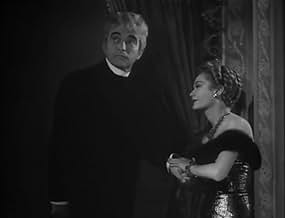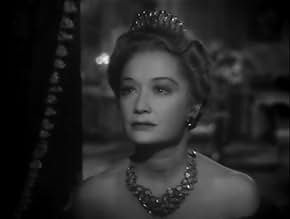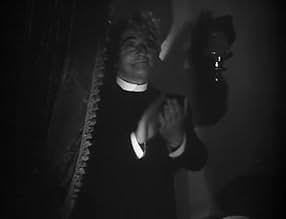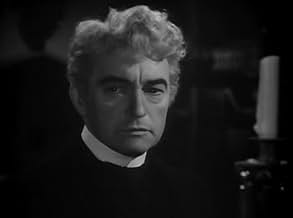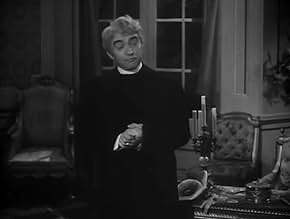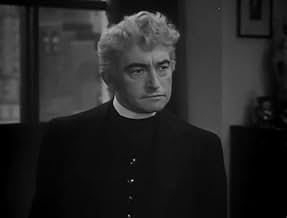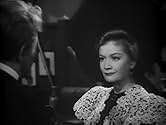Aggiungi una trama nella tua linguaA messy divorce leaves Mrs. Leslie Carter shunned by Chicago society for being an adulteress and forbidden from having custody of her son. She's determined to return to her hometown in a few... Leggi tuttoA messy divorce leaves Mrs. Leslie Carter shunned by Chicago society for being an adulteress and forbidden from having custody of her son. She's determined to return to her hometown in a few years as a success and with enough money to fight to get her son back. In order to realiz... Leggi tuttoA messy divorce leaves Mrs. Leslie Carter shunned by Chicago society for being an adulteress and forbidden from having custody of her son. She's determined to return to her hometown in a few years as a success and with enough money to fight to get her son back. In order to realize her plans, she heads to New York with ambitions of being a great actress. Despite having... Leggi tutto
- Regia
- Sceneggiatura
- Star
- Premi
- 2 vittorie totali
- Dudley Carter
- (as Johnnie Russell)
- Mrs. Peabody
- (non citato nei titoli originali)
- Miss Humbert
- (non citato nei titoli originali)
- Man in Belasco's Outer Office
- (non citato nei titoli originali)
- Observer on Courthouse Steps
- (non citato nei titoli originali)
- Audience Member
- (non citato nei titoli originali)
- Scenic Artist
- (non citato nei titoli originali)
Recensioni in evidenza
Mrs. Carter was a society socialite whose rather messy divorce and custody battle made her want to seek employment in the theater when she couldn't get a job doing anything else. After a few tries she hook up with David Belasco who molds her into a glamorous stage star from the turn of the last century.
What I found amazing in this whole film was that we never do find out just what in this divorce made her such a notorious woman. The film opens as the divorce proceeding is about to conclude, we never see what it was all about.
We do find out that the terms of the divorce gave her limited visitation rights to her son. That's given as the real reason for her determination to succeed as opposed to possibly trading in on her notoriety. A reason today's audience would definitely understand. In fact why was she billed as "Mrs. Leslie Carter" if it wasn't for the notoriety.
Miriam Hopkins as Carter and Claude Rains as Belasco give a good account of themselves. So do those two old gals Laura Hope Crews as Hopkins's mother and Helen Westley as the owner of the theatrical boardinghouse where they reside. Those two date back to when Mrs. Leslie Carter was a big name on Broadway.
Richard Ainley of the Ainley British theatrical family gives a wooden performance in a part that's underwritten as Carter's second husband. Wasn't Errol Flynn available?
Back in the 1890s divorce in and of itself was scandal. So why weren't we given the salacious details?
Interestingly, in 1951, the film "Too Young to Kiss" utilized the exact same music over the opening credits.
Being that 1939's "Oz" came first, I can only assume the later films "borrowed" composer Harold Arlen's score.
CORRECTION: I have been informed that the above-mentioned tune is actually not original to "Oz," but is a classically composed children's tune.
The real Mrs. Leslie Carter had one of her final roles before her death in 1935's Becky Sharp, which may have played a part in Hopkins wishing to do this biopic. From what I can gather, much of the material in the movie is fictitious, designed to make Carter look like more of victimized saint, when naturally the truth is much murkier. One wouldn't also gather why Carter was considered a sensation, as all of the play reenactments in the film are hammy and phony. Hopkins never manages to be likable, and I say this as someone who has liked Hopkins in a number of other things. Rains also gets shout, scowl, yell, thrash around, and then shout some more. Speaking of bad wigs from The Howards of Virginia, Claude sports one here. The most worthwhile scene in the whole movie was a catty dinner scene at a boarding house for theatrical people.
However, as the very theatrical title lady, MIRIAM HOPKINS gives an over-the-top melodramatic touch to her entire role, making it seem implausible that theater patrons would give her "acting" such a standing ovation. Indeed, the worse part of the film is when it shows Hopkins practicing her art or giving a demonstration of her talent as a stage actress.
The other flamboyant performance is given by CLAUDE RAINS, but rightfully so, since he's playing David Belasco who apparently liked to "ham it up" at every opportune moment whether teaching others how to act or simply acting up a storm in his personal life.
Director Curtis Bernhardt has done nothing to keep Hopkins or Rains from all the theatrical excesses they bring to their characterizations, but we do get some good supporting work from HELEN WESTLEY as the boarding home owner, LAURA HOPE CREWS (as Miriam's mother), JOHN LITEL as a producer, and many other Warner contractees. But RICHARD AINLEY is colorless in the sort of part that could easily have gone to CORNEL WILDE, who instead has a bit part as a wannabe actor at the boarding house. Ainsley's performance is wooden indeed and pales opposite the strident and mannered acting of Hopkins.
Interesting but something about the screenplay suggests that much was altered and cut in producing this film based on Leslie Carter's memoirs. Little JOHNNY RUSSELL appears briefly in two scenes as Carter's son, the one she loses custody of in a court battle. (He played Shirley Temple's little brother in THE BLUE BIRD shortly before this film).
Lo sapevi?
- QuizLouis Payne, the husband of Mrs. Leslie Carter in real life, coached Richard Ainley, who was playing him in the movie.
- BlooperNone of the Broadway plays mentioned in the movie were performed by Mrs. Leslie Carter. Her Broadway debut was in a play called "The Ugly Duckling" in 1890, not "The Way of Beauty." Her second play was "Zaza," not "The Lady From France." It is not known why the names of her plays were changed.
- Citazioni
David Belasco: The scene is finished... either applaud or get out of the way.
- Colonne sonoreTwinkle, Twinkle, Little Star
(uncredited)
Traditional
Played offscreen at the start of Miss Humbert's school sequence
I più visti
Dettagli
- Data di uscita
- Paese di origine
- Lingua
- Celebre anche come
- Lady with Red Hair
- Luoghi delle riprese
- Azienda produttrice
- Vedi altri crediti dell’azienda su IMDbPro
- Tempo di esecuzione
- 1h 18min(78 min)
- Colore
- Proporzioni
- 1.37 : 1


